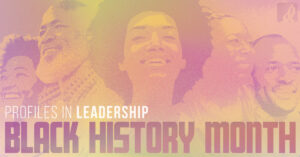To the rational mind that is paying any sort of attention, there are lots of reasons to be fearful. News alerts on our phones offer opportunities aplenty. The rapid spread and severity of the Coronavirus and its impact on our wellbeing, our kids’ education, the healthcare system, and the economy have been enough to send leaders spiraling into pits of terror and exhaustion. And rightfully so. Throw the IPCC climate report into the mix, and it’s not surprising that anti-depressants are flying off the shelves and therapists have months-long waiting lists. But is all of this being afraid helping?
I’ve been reflecting a lot lately about my relationship with fear. How, for so long, fear was in the driver’s seat, and I was a struggling passenger, gripping the door handle and dashboard for dear life (much like I do when my 17 yo is driving). I didn’t recognize this behavior as unusual, however. Growing up with a lot of trauma and uncertainty around me, fear was a constant, and suffering through it was all I knew. I assumed this was the way leaders and warriors moved through life – with a chronic near incapacitating fear that we wrestled to the ground, medicated ourselves through, and somehow – triumphantly overcame.
Not so.
In the last decade, I’ve redefined my relationship with fear. A few years ago, I was journaling through a particularly contentious situation, trying to peel away layers of worry that had engulfed my brain, leaving me unarmed and incapable of thinking clearly. I found myself writing, “God, I just want to take the fear out of my diet.” Something clicked for me at that moment. I imagined what it would feel like to literally remove panic and fear from the equation. How would I think, feel, react, and process challenges? I spent a few minutes visualizing scenarios without fear. It hadn’t occurred to me that I had a choice as to how long I wanted to hold on to fear. Could I consciously dismiss fear from my brain – and then be fully present with the other thoughts and tools at my disposal in order to assess a situation and ultimately make better decisions? Or was I afraid of being unafraid? Like if I wasn’t afraid, I could be caught off guard, accused of being naïve, judged for lacking a sense of urgency and awareness.
“Something clicked for me at that moment. I imagined what it would feel like to literally remove panic and fear from the equation. How would I think, feel, react, and process challenges?”
At this point, I was willing to take the risk. I sent fear to her room. And she’s still on a time-out.
I imagine fear sitting in the backseat now. I’m driving, glancing in the rearview mirror, acknowledging its existence but not letting it speak. It will always be available to me. Fear is always available to us if we need it. But do we need it? I’m not talking about a normal fear response that is key to our survival. I’m talking about the fear of failure, judgment, making the wrong decisions, and taking risks. I’m talking about fear of what other people are doing or not doing, fear for my kids’ future, for our future, fear of not being enough of something or too little of something else. How is my fear of all things actually helping?
Fear isn’t required to solve problems. It hinders me. And I have a choice in how long I let it.
Today, when fear tries to ride shotgun or grab the wheel, I remind myself that it does not serve and offer myself the option of setting it aside. I do so with grace and empathy for that part of me that is just being human and grabbing onto the first emotion that pops up. I do so with compassion, and I do so with resolve. Not relying on or reverting back to fear takes real intention and practice. I’m in training daily, as life hits me – and us – with constant reminders of how little we have control over. No question – I’m a better problem solver and leader, able to pivot and think clearer when I stay in faith and possibility.
If you struggle with the fear response like I do, I invite you to try on this practice through visualization and or journaling. What could be possible for you and those you serve if fear was no longer in the driver’s seat?

Suzanne St. John-Crane joined as CEO of American Leadership Forum Silicon Valley in March of 2016, having been through both Classic Class XXV and the inaugural Urbanism Class XXXIV. St. John-Crane has worked in community media for the last twenty-four years, having served as the founding executive director for two community television stations in the Bay Area, including CreaTV San Jose. St. John-Crane was named one of Silicon Valley’s 100 Women of Influence in 2012 by the Business Journal and currently serves as Board Chair of ALF National.




